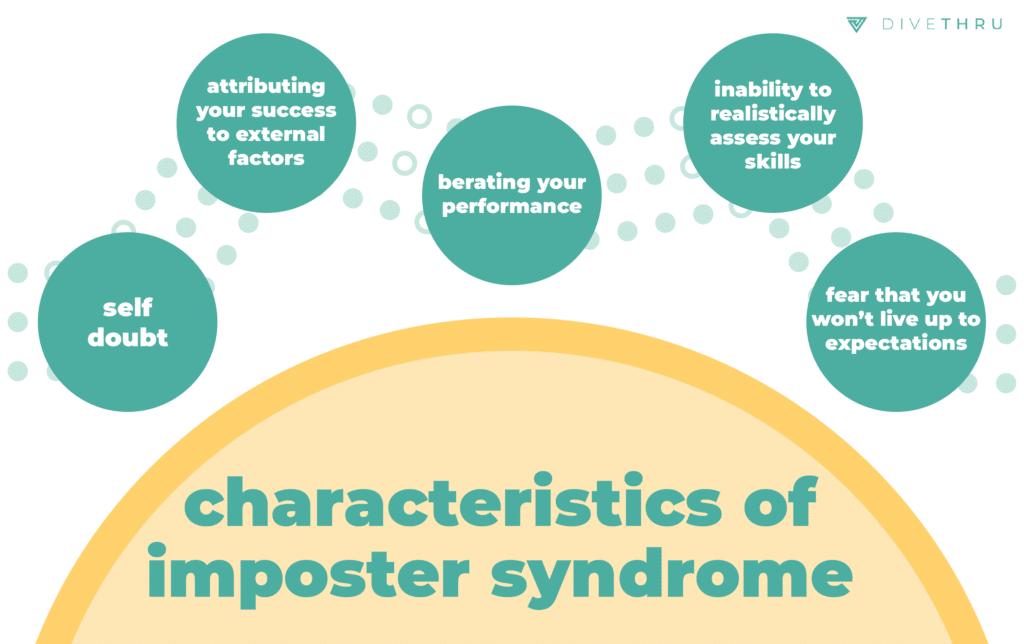Breaking up sucks. It’s a known fact. The sun sets in the west, there are 31 days in January, Taylor Swift is the queen of everything and breaking up sucks. And you’re here, left wondering what to do after a breakup, and that’s exactly what we’re going to talk about.
Nothing we can say will make it all better. But guaranteed we’re gonna try anyway. We’re stubborn like that. So, we’ve put together our best tips – the dos and don’ts – for getting through a breakup. They won’t fix everything immediately, but hopefully they’ll at least give you a place to start.
Baby steps, right? You’ve got this.
9 Things to Do After a Breakup
The idea of moving on seems impossible right now, we know. So we won’t focus on that! Because if we’re being honest, trying to envision filling that “void” of the future is not even helpful.
What we’re going to do instead is focus on you and the brilliance within you. We want you to turn your attention inward because that’s where you’ll find the strength. It’s already a part of you. Here’s how we access it.
1. Lean on Your Support System
Your partner was your go-to. The first person you wanted to talk to after the best day or the worst one. After your breakup, you may feel like you’ve lost your support system.
But you haven’t. That’s the thing about a support system. It’s a system. It’s not just composed of one individual. Lean on the other people in your life: your friends, your family, your co-workers. Each of them is also part of your support system.
Vent, cry, scream, laugh, and remember that you don’t have to go through this alone. Whether you need a girl’s night, a hug from your mom, or just a listening ear, don’t be afraid or ashamed to ask for help when you need it. These people are your support system for a reason. They are there for you.
2. Invest in Relationships You May Have Neglected
It happens to the best of us. We fall in love, spend all of our time with our significant other, and, unintentionally, neglect many of the other relationships in our lives. We often have the idea that romantic relationships are the be-all-end-all of life, but they’re not. Each relationship in your life has value. Take the time now to invest in all of the other relationships that you may have pushed to the side. Reconnect with friends, family members, mentors, and co-workers and appreciate what each relationship brings to your life.
3. Say Yes to New Opportunities
After a breakup, it’s very tempting to lock yourself in your room and watch Disney +. And that’s ok — to an extent. At some point, you’ve got to get back out there. A great way to help the process along is to say yes. Do you want to go to a movie? Yes. Do you want to come to the grocery store with me? Yes. Do you want to grab a coffee? You guessed it. Yes.
Venturing out alone after a breakup is hard. But saying yes to invitations and social outings means you’ll never have to go alone. You’ll always have people to go along with you. Saying yes to invitations and opportunities will also help you rediscover yourself and who you are without your partner. Which, if we may, is pretty freaking amazing.
Note: Always listen to yourself. It’s great to get out and be surrounded by friends, but if you’re feeling run-down and need a night to yourself, take it. Do what works for you. Always.
4. Pick Up a New Hobby
Keeping busy will help keep your mind off of the cloud looming over your head. Pick up a hobby you may have put aside while spending time with your significant other. Even if you can’t keep your mind off of them, at least you’ll be doing something fun rather than sitting on your bed.
Double bonus points if your hobby is a group activity. Spending time with others and making new friends is a great way to build new relationships. You can never have too many close friends. Triple bonus points if your group activity is volunteering. You’ll be able to give back to your community while reaping the many health benefits of volunteering.
5. Practice Gratitude
Ok so obviously you’re not going to be jumping for joy at the moment. We’re not expecting you to be. But that doesn’t mean you can’t be grateful. Focusing on the good will help you realize that your relationship was not the only thing that brought you happiness.
There are plenty of other things in your life to be grateful for every single day: your support system, Brooklyn 99, the smell of the rain, your dog. The list goes on and on. Go out into the world and admire everything beautiful about it. When you search for the good, you’ll find that you see it in everything.
6. Re-evaluate Your Needs
One reason your relationship may have ended is because your needs were no longer being met (or were never met in the first place). If that’s the case, now’s the perfect time to re-evaluate those needs.
Recognize where your boundaries may have been crossed in the past and how you can re-establish them for future relationships. Healthy, successful relationships are built on understanding and respect for one another’s needs.
7. Seek Support If Coming Out of an Unhealthy or Abusive Relationship
Coming out of any relationship is difficult. But coming out of an unhealthy or abusive relationship is a whole other story. After an unhealthy relationship, take the time you need to heal.
When you’re ready, it’s also important to reflect on what you learned and experienced throughout the course of that relationship. Think about how you may be able to take those experiences and grow from them.
If you were in an abusive relationship, ensure you’re taking the proper steps to protect yourself and reach out for professional support. You don’t have to go through that alone.
8. Journal
We feel a lot on any given day. So, how much do we feel post-breakup? A LOT A LOT.
Sad, scared, angry, confused, shocked, lonely, and shattered. We have feelings coming out the wazoo. The best way to deal with those feelings is to write about them.
Journaling allows you to process your emotions in a healthy way and can help you reflect on different aspects of your relationship. Elle Huerta, founder of the breakup app, Mend, explains that journaling allows people to “release the thoughts and emotions that have built up during a breakup”. She also adds that a regular journaling practice can help you redefine your sense of self.
The good news: Our DiveThru app has an entire section dedicated to relationships, including a deep dive on “working through a breakup.”
The better news: It’s free to download!
So, grab your favourite journal, get comfy, and start diving thru today.
9. Be Kind to Yourself. It’ll Take Time.
Read this again. We saved the most important for last.
Whether it was weeks, months, years, or decades, your partner was a significant part of your life. They weren’t called a “significant other” for nothing. And as much as you may want things to get better overnight, they won’t. Healing takes time. It’s going to hurt.
But no matter what happens, be kind to yourself. You’re going through a lot and you’re doing your best. Take it day by day and treat yourself with the same kindness you would your best friend. You deserve it.
8 Things to Avoid Doing After a Breakup
The truth is…you’re not thinking clearly when you’re being crushed by pain.
And it’s usually when you’re tired (and perhaps slightly inebriated??) that you feel the need to ease that pain the quickest way you know how…by reaching out to your ex. 13/10 not recommended.
Experience has taught us there are a few other ways you’ll try to numb that pain. We put them all in a list and we’re hoping you reach for it every time you feel the need to check yourself.
Without further ado, do NOT…
1. Ignore Your Emotions
You just broke up with your partner. You’re allowed to feel whatever you’re feeling. We know you’re probably trying to do everything you can to push down your negative emotions and, honestly, we don’t blame you.
But it’s hella important to let yourself feel those negative emotions, too. Just don’t become consumed by them.
Managing negative emotions is more about embracing the fact that we are feeling them, determining why we are feeling this way, and allowing ourselves to receive the messages that they are sending us before we release them and move forward. -Elizabeth Scott, MS
You’re human. And breakups are sad. Remember that.
2. Compare Your Timeline to Others’
You’re a month post-breakup and you’re feeling alright. You pop on Instagram for your hourly check-in and wait… WHAT? You feel like the wind has been knocked out of your body. There’s your partner. With a new date. Of course, it’s the first photo on your feed. “Are you kidding me?” you think. “How did they move on so fast?”
“What am I doing wrong?”
Stop. Red light. There is absolutely nothing you are doing wrong. Working through a breakup is not a race. There is no timeline or scientific formula for getting over your ex. (Although that would be handy, wouldn’t it?) Trust that you are moving at your own pace and do not ever compare your healing process to that of someone else’s. You do you.
3. Rush Into Another Relationship
It’s emotionally exhausting to deal with a breakup. And it’s really important to take time for yourself before you dive into another relationship. If you’re not ready to date again, it’s not fair to you or your new partner to pretend you are.
4. Call or Text Your Ex
It’s 1:37am and your eyes are swollen from crying. You’re lonely and shattered and all you want to do is hit send.
Don’t.
Reaching out to your ex will only reopen the wounds that you’re working so hard to close. According to Breakup Coach Nancy Deen, the solution to this problem is to appoint a “breakup accountability buddy”. It works exactly like you think it does: whenever you want to call or text your ex, you call them instead. Nancy has created a list of questions for your breakup accountability buddy to ask you every time you call:
Where are you? What were you just doing? How are you feeling about texting them (or their text to you)? What would you want to say to them?
The call should only take about 5 minutes but will make you feel sooo much better afterwards.
Understand there is space between your thoughts, and your actions. Sometimes it’s tough to realize that just because you have a thought or craving, doesn’t mean you must act on it. -Nancy Deen
5. Stalk Their Social Media
Remember that little Instagram anecdote from a couple points ago? Yeah, we don’t want that happening to you. So, you know what you’re gonna do? You’re gonna go onto all of your social media right now and block your ex.
Yep. This is a big step and believe us, it’s not easy. But the mindless monitoring and constant exposure to their life is no good for the healing process. You need to give yourself time and space to properly move on. And you can’t very well do that if you’re seeing their (suddenly annoying) daily posts on Instagram.
6. Create Unhealthy Habits
Crushing an entire tub of ice cream by yourself is ok if that’s what you need in the moment. Just be conscious that it doesn’t turn into a habit. Hiding in your bed watching Netflix all day is ok if that’s what you need in the moment. Just be conscious that it doesn’t turn into a habit.
Going through a breakup is a big transition period in your life. And transitions have a tendency to upset your routine. When you’re ready, try to find your new routine. Going through a breakup is emotionally exhausting but taking care of yourself physically can help you get back on track.
7. Think the Relationship Was a Waste
It may seem bad now, but it doesn’t mean the entire relationship was bad. There were good moments too. Maybe they were your first love. Maybe you grew together. Look for the good. And, in the unlikely event that there are no other positives, at least you learned something from them. Maybe you learned how to stand up for yourself. Maybe you learned how to say “no”. There’s always something to take away. Find it.
8. Keep the Door Open
If the possibility of getting back together is still on the table, there is no way you’ll be able to move on. You’ll keep the thought in the back of your mind for weeks or months, which is definitely not a healthy part of the healing process. It’s not fair to either one of you to keep that door open. As much as it hurts, it’s better not to drag it out. You deserve closure.
Remember, even though it feels like your entire world just came crashing down, you will survive. Lean on your support system, talk it out, and do what you need to do to feel better. It will take some time, but you will be ok. You will find yourself again and you will be happy again. Trust yourself (and us).












